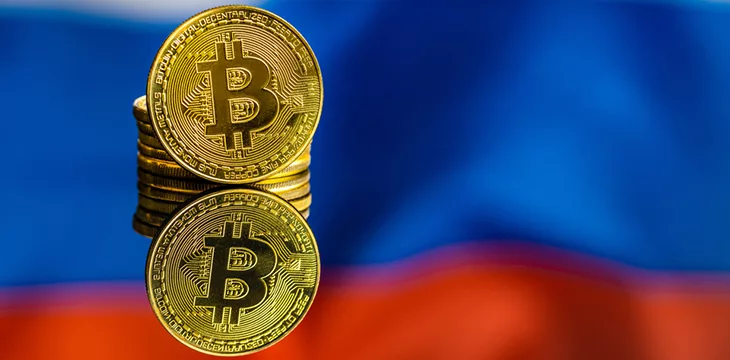|
Getting your Trinity Audio player ready...
|
Russia has reached a new milestone in its plan to utilize digital assets for cross-border transactions following the approval of the second reading of a proposed bill by the State Duma Committee on the Financial Market.
In a report by Interfax, the Committee issued a green light for the bill to proceed for a second reading on the floor of the House after confirmation of several proposed amendments.
“Digital financial assets can be used as counter representation under foreign trade agreements (contracts) concluded between residents and non-residents,” read a portion of the amended bill.
Plans to use digital assets to settle cross-border transactions first surfaced in late 2021, with legislators referring to them as digital financial assets (DFA). At the time, there were no grand ideas to deploy them in international trade; rather, the primary goal was to bring the asset class under official supervision.
Russia has been exploring the use of digital assets to settle international transactions in the wake of stifling sanctions following the 2022 Ukraine invasion. The economic sanctions forced the hand of several payment service providers to blacklist Russia in a move that shrunk the country’s economy by as much as 5%.
To press the point home, SWIFT banned leading Russian financial institutions, prompting the country to explore other settlement alternatives, including central bank digital currencies (CBDCs) and stablecoins.
While plans for a digital ruble with cross-border functionalities are underway, leaning on digital assets for foreign trade shows the most promise at the moment.
Anatoly Aksakov, head of the Duma Financial Committee, highlighted several benefits stemming from using DFAs in international trade, including the circumnavigation of sanctions and cost-saving perks.
“The use of digital assets to service foreign trade operations will help Russian importers and exporters work more actively with friendly countries,” said Aksakov. “To a certain extent, we will be able to solve the problem of sanctions pressure on our country.”
Digital ruble offers promising alternative
As Russian authorities explore new avenues to skirt the stifling sanctions, CBDCs offer a solution to the pariah state. The Bank of Russia has previously launched studies to probe the viability of deploying a digital ruble for cross-border trade, signing bilateral arrangements with China and other BRICS nations.
“The topic of digital financial assets, the digital ruble, and cryptocurrencies are currently intensifying in society, as Western countries are imposing sanctions and creating problems for bank transfers, including in international settlements,” Aksako said in October.
Watch: Blockchain is the safest way to do payments

 02-18-2026
02-18-2026 




